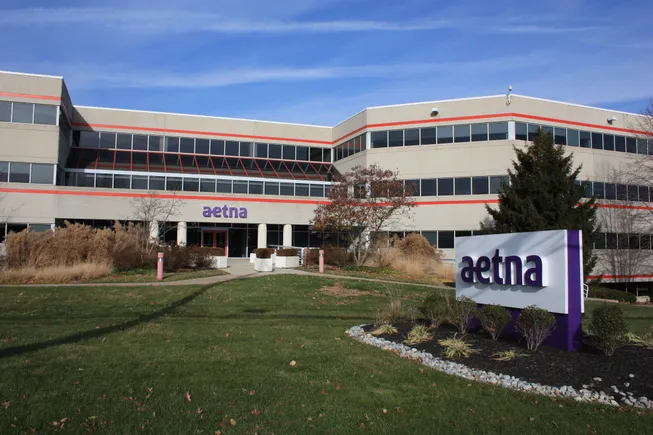Dive Brief:
Aetna is suing nearly two dozen drugmakers for allegedly conspiring to overcharge the insurer for generic drugs.
The complaint, filed late last month in Superior Court in Hartford, Connecticut, argues pharmaceutical companies including Pfizer and Teva Pharmaceuticals collaborated through secret communications and meetings to fix the prices of certain generic medications, driving up costs for insurers, patients and the government.
The conspiracy “thwarted competition” for generic drugs and caused the prices for the medications to skyrocket, some by more than 1000%, according to the insurer’s suit.
Dive Insight:
The complaint from Aetna, which is owned by healthcare conglomerate CVS Health, follows multiple suits by a coalition of state attorneys general alleging price-fixing for generic drugs. This fall, two pharmaceutical companies — Heritage Pharmaceuticals and Apotex — settled with the states for more than $49 million for their role in a scheme that aimed to thwart competition for generic drugs.
Insurers, including Humana and UnitedHealthcare, ;have also sued pharmaceutical companies for alleged generic price fixing schemes, arguing they were overcharged for beneficiaries’ medications.
Although competition between pharmaceutical companies producing generic drugs is supposed to drive down costs and provide a cheaper alternative to patented brand-name drugs, the lawsuit claims drugmakers worked together to limit competition and raise or maintain prices.
Aetna’s lawsuit argues the companies communicated mostly through phone calls, private meetings and at public events, like trade conferences, to set up a “fair share” scheme, where the companies would determine how much market share and which customers each manufacturer was entitled to.
The drugmakers allegedly refused to bid for specific purchasers or offered “outrageously” high bids. They could then raise prices collectively for a generic drug or prevent them from falling, according to the complaint.
“Defendants and their co-conspirators understood and acted upon an underlying code of conduct widespread in the generic drug industry: any time a competitor enters a particular drug market, it can contact its competitors and allocate the market according to a generally agreed-upon standard of ‘fair share’ in order to avoid competing and keep prices high,” Aetna wrote in the suit. “While different drugs may involve different competitors, this understanding remains constant and is the backbone of the industry wide conspiracy.”
Along with Teva and Pfizer, other drugmakers named in the suit are Actavis Pharma, Amneal Pharmaceuticals, Apotex, Aurobindo Pharma, Breckenridge Pharmaceutical, Dr. Reddy’s Laboratories, Glenmark Pharmaceuticals, Greenstone, Lannett, Lupin Pharmaceuticals, Mylan Pharmaceuticals, Novartis, Sandoz, Taro Pharmaceuticals, Upsher-Smith Laboratories Viatris, Wockhardt and Zydus Pharmaceuticals.
Most of the drugmakers didn’t respond to requests for comment. A spokesperson for Upsher-Smith said the company doesn’t comment on pending litigation.


